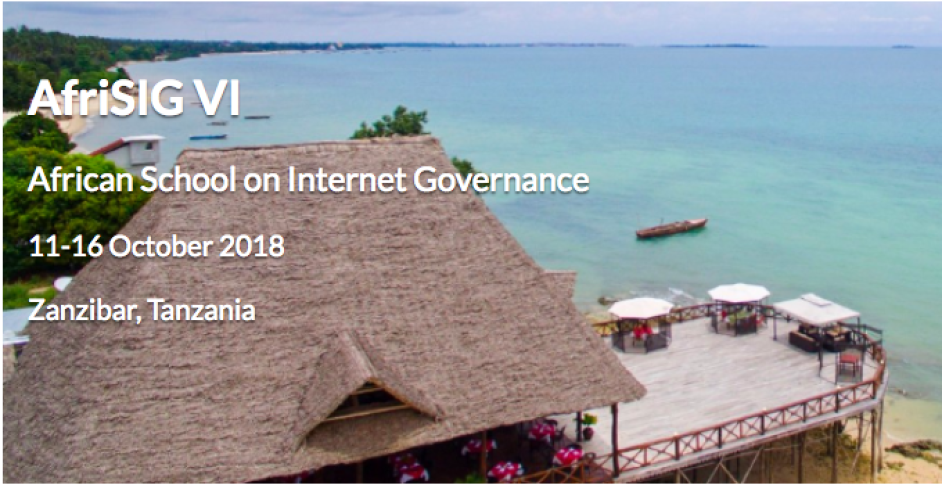
The sixth African School on Internet Governance (AfriSIG) will take place in Zanzibar, 11-16 October 2018. The School, organised by the Association for Progressive Communications (APC), the African Union Commission and Research ICT Africa, will be attended by 34 Africans fellows drawn from multiple sectors and stakeholder groups. AfriSIG 2018 will give the fellows the opportunity to gain knowledge that will increase their capacity to participate in internet governance processes and debates at the national, regional and global levels.
Over the years, AfriSIG has built a multidisciplinary cadre of expertise in internet governance on the continent through the participation of current and emerging leaders drawn from government, business, academia and civil society. In 2017, the School was awarded with a World Summit on the Information Society (WSIS) Prize for international and regional cooperation. A tracer study conducted during the first quarter of 2017 examines the impact on individual participants in the first four Schools (2013, 2014, 2015 and 2016).
This year’s AfriSIG, which is made possible by the support of DW Akademie, Access Now, Facebook, Google, AFRINIC, Afilias, ICANN, the Public Interest Registry, the Internet Society (ISOC) and also ISOC's Collaborative Governance Project, will be preceded by a two-day workshop on "Tools for Effective Participation and Management of Multistakeholder Discussions" hosted by the Internet Society's Collaborative Governance Project.
“We have designed the workshop to equip fellow with the skills needed to be effective in multistakeholder discussions which have been the core of internet governance for many years,” explained facilitator Larry Strickling, executive director of the Project.
A particular highlight of AfriSIG is a practicum where participants have the opportunity to simulate multistakeholder decision making in relation to a current topic using available methods and processes. This year the practicum will focus on the impact of the EU General Data Protection Regulation (GDPR) in Africa.
According to Avri Doria, facilitator of the practicum, “This will give fellows a chance to discuss the GDPR’s effect on Africa and Africans, and think of possible approaches to deal with it. The practicum will simulate an environment that fellows may experience during their professional careers and will give them a chance to stretch their skills and get used to working within a multistakeholder process.”
The School will run over five days, covering topics that include an overview of internet governance concepts, internet architecture, infrastructure, standards and protocols, internet governance and social issues such as gender, human rights and development, cybersecurity, multistakeholder approaches and emerging issues in internet governance such as algorithms and the internet of things.
For news and updates on the African School on Internet Governance:
-
Check out the AfriSIG website
-
Follow @AfriSIG and #AfriSIG2018 on Twitter